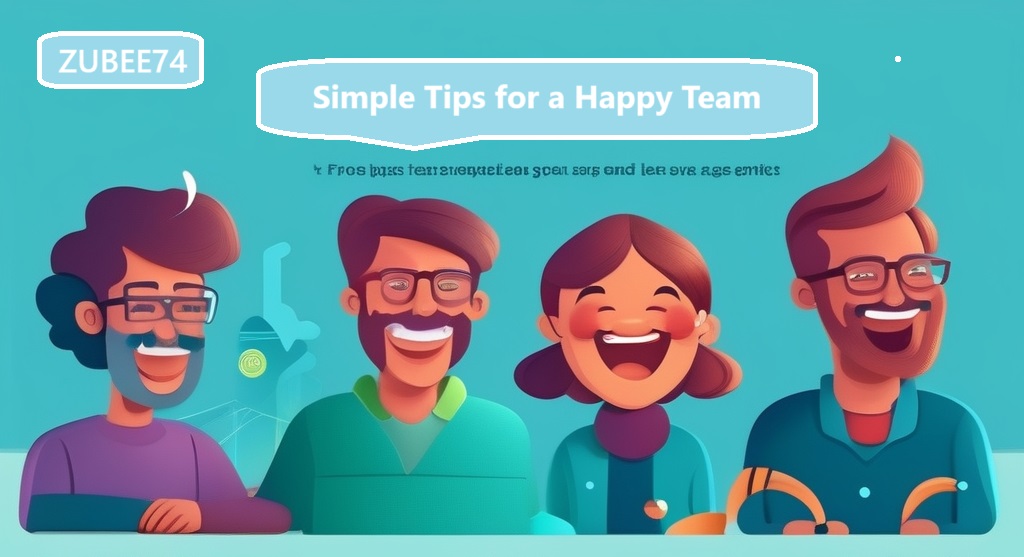How Testers Can Get Along with Developers: Simple Tips for a Happy Team
 Mohammad Zubair
Mohammad Zubair
Building a harmonious relationship between software testers and developers is key to creating top-notch applications. Sometimes, though, conflicts can arise. Fear not! We've got some easy-to-follow tips that will help testers and developers work together like a dream.
Talk it Out: Communication is the magic wand that can make conflicts disappear. As testers and developers, it's essential to have open and honest conversations with each other. Share your thoughts and concerns openly, and don't forget to listen to what the developers have to say. A good chat can often clear up misunderstandings and pave the way for a smoother collaboration.
Team Up from the Start: To build a harmonious relationship, it's important to get involved early on in the project planning. By doing so, you'll have a better understanding of what's happening and can spot potential issues before they become big problems. Remember, teamwork makes the dream work. By being actively involved from the start, you can contribute your insights and expertise, ensuring a smoother development process.
Clear as Day: One of the major causes of conflicts between testers and developers is confusion due to unclear requirements. To avoid this, it's crucial to nail down exactly what needs to be done. Take the time to review and clarify requirements, ensuring that they are crystal clear. This simple step can save a lot of time and prevent unnecessary conflicts in the long run.
Let’s Meet: Regular team meetings are like family gatherings for your work family. These meetings provide everyone with the opportunity to share updates, talk about challenges, and keep everyone on the same page. By actively participating in these meetings, you not only stay informed but also foster a sense of unity within the team. Use this time to discuss any concerns or issues, and strive for open and constructive communication.
Use Tools Together: Tools like Jira, Trello, or Slack can be your trusty sidekicks in creating a cohesive team dynamic. They help everyone stay organized and make collaboration a breeze. Embrace these tools and encourage their use among team members. Explore their features and functionalities, and utilize them to their full potential. By using these tools together, you'll enhance productivity, improve communication, and create a more seamless workflow.
Code Reviews as a Team: Don't leave code reviews solely to the developers. As a tester, join in! Participating in code reviews is an excellent way to understand what's happening under the hood and to give timely feedback. By actively engaging in code reviews, you not only gain valuable insights into the development process but also have the opportunity to provide your perspective and suggestions. This collaborative approach fosters mutual understanding and strengthens the bond between testers and developers.
Nice Feedback Only: When you come across issues or bugs, it's important to approach them with a positive mindset. Instead of pointing fingers, focus on finding solutions together. Constructive feedback is the name of the game. Frame your feedback in a positive and respectful manner, highlighting the problem while offering suggestions for improvement. Remember, the goal is to work together towards a common goal, not to create an environment of blame.
Knowledge Swap: To truly understand each other's challenges and foster empathy, swap roles for a day! Developers can dive into the world of testing, experiencing firsthand the intricacies and complexities of your work. On the other hand, testers can explore development, gaining a deeper understanding of the coding process. This shared knowledge and experience can bridge the gap between testers and developers, leading to a more cohesive and empathetic team.
Be Nice, Be Respectful: Above all, remember that we're all in this together. Treat each other with kindness and respect. Avoid using words or taking actions that might hurt someone's feelings. Foster a culture of inclusivity and understanding, where everyone's input is valued and appreciated. By creating a supportive and respectful environment, you lay the foundation for a strong and happy team.
Keep Learning: Encourage everyone on the team to keep learning and improving. Attend training sessions, participate in webinars or workshops, and stay up-to-date on the latest advancements in technology. Share what you've learned with the team, fostering a culture of continuous growth and development. By embracing a growth mindset, you not only enhance your own skills but also contribute to the collective knowledge of the team.
Conflict No More: If conflicts persist despite your best efforts, it might be time to bring in a neutral party to help find a resolution. This could be a manager or a mediator who can provide an outsider's perspective and facilitate the discussion. Having an unbiased third party can often bring fresh insights to the table and guide the team towards a mutually beneficial solution. Remember, two heads are often better than one when it comes to resolving conflicts.
Celebrate Together: Finally, when the project succeeds, celebrate as a team. Take the time to recognize each other's hard work and accomplishments. Celebrating together not only boosts team morale but also reinforces the bond between testers and developers. Whether it's a small gesture of appreciation or a team outing, make sure to acknowledge the efforts of everyone involved. A happy team is a successful team!
Conclusion:
In conclusion, building a harmonious relationship between testers and developers is crucial for the successful creation of top-notch applications. By adopting effective communication strategies, active involvement in project planning, utilizing teamwork and tools, participating in code reviews, providing constructive feedback, sharing knowledge, and fostering a culture of respect, continuous learning, conflict resolution, and celebration, testers and developers can work together like a dream. Embracing these simple tips will lead to a happier and more productive team dynamic, resulting in the development of exceptional software applications. Happy coding!
Subscribe to my newsletter
Read articles from Mohammad Zubair directly inside your inbox. Subscribe to the newsletter, and don't miss out.
Written by

Mohammad Zubair
Mohammad Zubair
I'm a professional Software Test Engineer with two years of experience in software testing. Proficient in developing and executing automated test scripts, performing manual testing, and identifying and reporting defects.